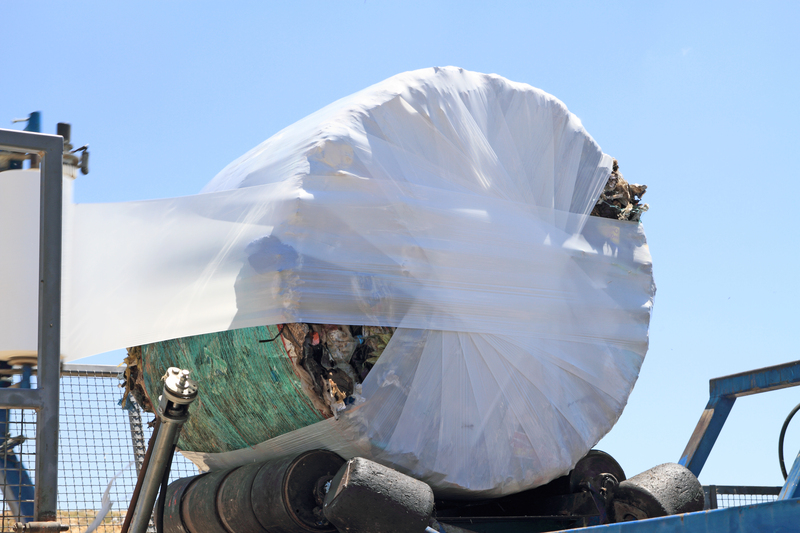Optimize Resource Management through Smart Waste Solutions
In today's rapidly evolving world, the concept of resource management has taken a pivotal place in both environmental and economic discussions. Organizations are constantly on the lookout for sustainable ways to manage resources more effectively. One such avenue that holds immense promise is the implementation of smart waste solutions. These solutions not only help in waste reduction but also in optimizing overall resource utilization.
Understanding the Basics of Smart Waste Management
The term smart waste management refers to the use of modern technologies and innovative strategies to manage waste more efficiently. The goal is to not just reduce the volume of waste but also to recycle and reuse resources wherever possible. By incorporating technology like IoT (Internet of Things), big data, and artificial intelligence, businesses and municipalities can significantly enhance their waste management processes.
Key Elements of Smart Waste Solutions
- Data Analytics: Utilizing data to predict waste production, track waste collection, and analyze recycling rates.
- IoT-Enabled Bins: Smart bins equipped with sensors that notify collection services when they are full, optimizing the collection process and reducing unnecessary trips.
- Automated Sorting: Technologies that segregate waste into recyclables, compostables, and landfill items, thus streamlining the recycling process.
- Resource Recovery: Techniques to extract valuable materials or convert waste into energy, providing economic and environmental benefits.

The Benefits of Smart Waste Management
Adopting smart waste management solutions yields numerous benefits that go beyond mere waste reduction. Here are some significant advantages:
Enhanced Efficiency
By focusing on optimization, smart waste solutions help businesses and local governments minimize waste management costs and boost operational efficiency. For instance, companies can reduce transportation costs by using IoT-enabled bins that schedule collections based on bin fullness, rather than on preset schedules.
Environmental Impact
Reducing the amount of waste sent to landfills is a critical environmental goal. Smart waste management systems enable this by boosting recycling rates and reducing pollution. Smart technologies can ensure that recycling and composting processes are more thorough and less resource-intensive.
Economic Gains
The efficiency gained through smart waste management translates into economic savings. Resource recovery, for example, enables the extraction of valuable metals and materials from waste, which can be resold or used, creating a new revenue stream. Furthermore, by reducing over-collection and optimizing routes, companies can cut down on labor and fuel costs.
Implementing Smart Waste Solutions in Urban Areas
Urban areas, with their higher population densities and greater waste production, have a critical role to play in the adoption of smart waste management solutions. Cities can lead the way by incorporating these technologies into their waste management plans.
Smart Bins and Urban Infrastructure
Deploying smart bins in cities can drastically reduce waste collection efforts. With the integration of IoT technology, these bins can send real-time data to waste management companies, triggering collection only when necessary. This minimizes the environmental footprint of garbage trucks and reduces operational costs.
Promoting Public Awareness
Educating citizens about the importance of smart waste management is crucial. Urban administrations can use digital platforms to inform the public about optimal waste disposal practices and the benefits of using smart waste technologies. Public participation is essential for the success of these initiatives.
Challenges and Solutions in Smart Waste Management
Though the benefits of smart waste solutions are numerous, their implementation is not without challenges. Here, we discuss some of these hurdles along with potential solutions:
Technological Limitations
Implementing advanced technologies requires significant investment and technical expertise. Many areas, especially in developing countries, might find these requirements challenging. Solution: Public-private partnerships can provide the necessary funding and expertise, facilitating the deployment of these technologies more broadly and effectively.
Data Privacy Concerns
With any IoT-based system, data privacy is a significant concern. Residents and businesses may be apprehensive about how data will be used. Solution: By ensuring transparency and securing data through robust encryption standards, cities and companies can mitigate privacy concerns and foster public trust in these systems.

The Future of Resource Management with Smart Waste Solutions
The potential for smart waste solutions to revolutionize resource management is immense. As technology evolves, so too will the tools available for efficiently managing waste. From robotic sorting systems that can identify and sort waste more accurately, to advanced recycling technologies that convert waste into reusable materials, the future is bright.
Integration with Circular Economy Principles
A significant trend is the integration of smart waste solutions with circular economy principles. This involves designing products and systems with resource efficiency in mind, reducing raw material use and maximizing product life cycles. By aligning these frameworks, businesses can enhance sustainability and reduce costs.
Conclusion
Optimizing resource management through the adoption of smart waste solutions is a critical step toward a more sustainable future. By leveraging technology, optimizing processes, and engaging the public, businesses and cities alike can transform waste from an environmental burden into a valuable resource. As we face new environmental challenges, these innovations offer a beacon of hope for a cleaner, more sustainable world.